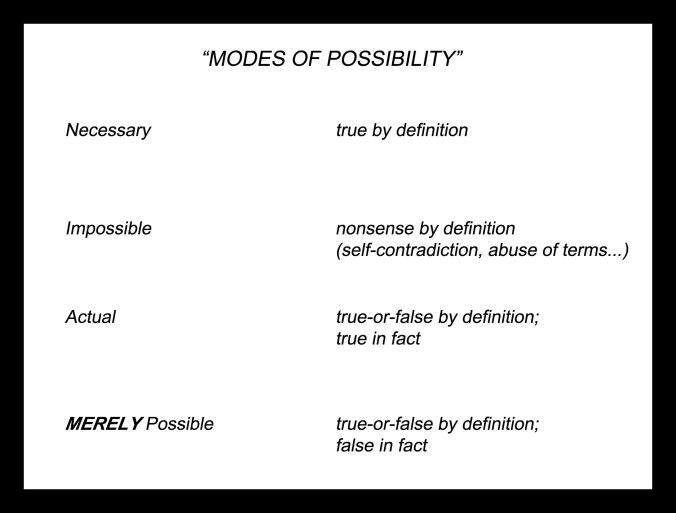It seems to me any claim of the form “p is necessarily true” boils down to a claim that p is a logical consequence of the way a community of free speakers have chosen to restrict their language in defining terms, objects, concepts, premises… rules of inference.
Along those lines, I might distinguish four “modes of possibility” for judgments in ordinary language (or “modes of conceivability” — I’m not sure what in general is supposed to be the difference):

Of course that’s not to say one knows (or can know) that terms have been defined and used correctly, nor to say one has determined (or can determine) the corresponding range of putative facts correctly.
How does the discourse on necessity and modal logic help me to correct or refine this knucklehead account of modal concepts and judgments? I mean broadly speaking, what sort of corrections and refinements should I anticipate?
Given a corrected and refined account: Doesn’t it remain the case that all our claims of necessity have at most hypothetical force?